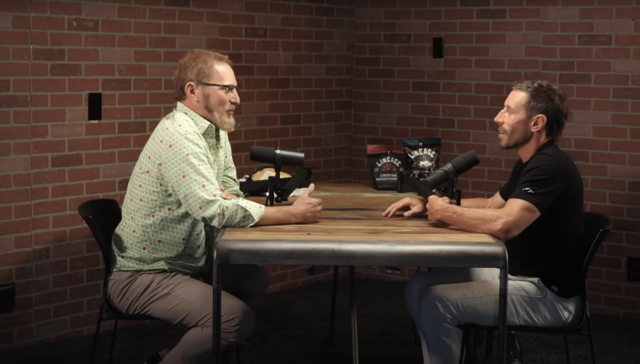You might be surprised to learn that the fight to save bees is directly tied to our own health and the integrity of our food supply, especially when so much 'honey' on the shelves isn't what it seems.
I sat down with my friend Eric Mason from Save the Bee to talk about just how crucial these insects are—pollinating one in every three bites of food we consume and 70% of agricultural crops—while a single worker bee produces a mere twelfth of a teaspoon of honey in its lifetime. In our conversation we uncover the alarming extent of honey adulteration and contamination with substances like glyphosate and neonicotinoids, which impact the bee's gut biome in ways that echo human health concerns. And you'll also understand the immense pressure industrial agriculture, like the almond industry's reliance on 88% of U.S. managed bees, puts on these creatures, turning pollination events into 'pathogen Super Bowls.' So this discussion will equip you to better identify genuine, beneficial honey, grasp the significance of a pesticide-free foraging radius for bees, and see why their well-being is a direct reflection of our planet's health.
TIMESTAMPS
00:00:00 Meet Eric Mason
00:02:43 Why we need to Save the Bee
00:09:17 The Lifecycle and Work of Bees
00:23:02 The Queen Bee and Hive Dynamics
00:27:55 Honey Harvesting and Beekeeping Practices
00:31:23 Tribal Honey Hunting Adventures
00:38:48 The Problem of Fake Honey
00:50:52 Impact of Pesticides on Bees
00:56:42 Industrial Agriculture and Bee Health
01:08:26 Challenges of Sourcing Pure Honey
01:10:28 Understanding Raw Honey
01:13:34 The Decline of Bee Populations
01:18:19 The Role of Bees in Agriculture
01:19:22 Different Bee Products: Royal Jelly, Propolis, and Bee Pollen
01:24:17 The Therapeutic Benefits of Beekeeping
01:30:46 The Importance of Bee Conservation
01:32:16 How to Support Bee Health
References & Links
Sponsors

